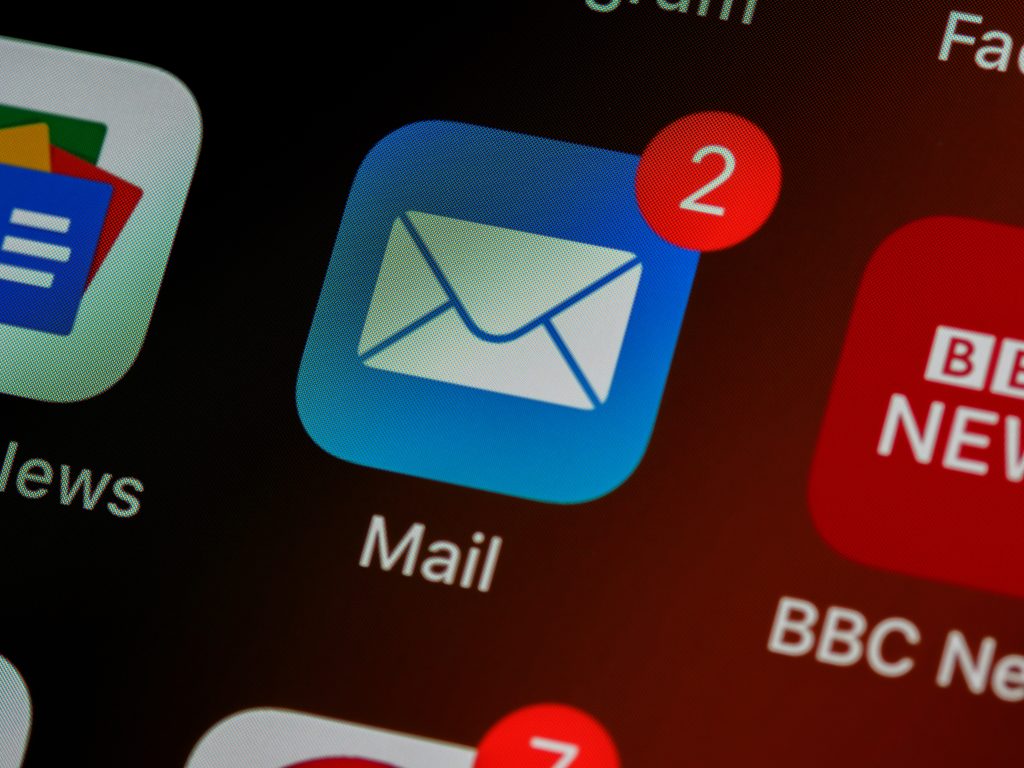
In our digital age, your nonprofit undoubtedly relies on email to communicate with donors, volunteers, and other stakeholders. You may have ditched paper communications altogether, relying solely on email to distribute your newsletter or seek donations. If so, following email legal guidelines is crucial.
Email compliance not only protects your organization from fines and penalties, but also builds trusting relationships with your supporters. In this article, we’ll explore some email legal guidelines to be aware of, along with best practices for email compliance at your nonprofit.
Exploring email legal guidelines for nonprofits

As a substantial part of our daily lives and interactions unfold online, safeguarding data has become a huge concern. Many developed nations and territories have passed laws that protect consumers from unsolicited email, scams, and spam.
These regulations vary depending on where your nonprofit is located. You’ll also need to consider your recipients’ locations if your email list goes out to several countries or states. While you should thoroughly research applicable regulations for your location, the email legal guidelines discussed below are some of the most notable.
Most email compliance laws are specific to commercial emails, but nonprofits aren’t always exempt — especially if you sell products or have corporate sponsors.
USA: CAN-SPAM Act
The Federal Trade Commission introduced CAN-SPAM (Controlling the Assault of Non-Solicited Pornography and Marketing) in 2003 to protect email users from unwanted commercial messages and spam. The CAN-SPAM Act includes the following guidelines:
- The email sender must clearly identify themselves
- The email subject line must accurately describe the message’s content
- If the email is an advertisement, this must be clear
- The email sender must include their location (for example, your nonprofit’s physical address)
- The recipients must have a way to opt out of future messages (if you have several email lists, you must include an “opt out of all” option)
- Senders must honor opt-out requests within 10 business days
- Organizations are legally responsible for following these guidelines, even if they use a third-party email marketing service
It may sound like a lot of red tape, but the CAN-SPAM Act is one of the more lenient regulations in the global email compliance landscape.
Canada: CASL
Created in 2014, CASL (Canada’s Anti-Spam Legislation) includes several of the same guidelines as CAN-SPAM, including requiring senders to identify their location and the purpose of the message, as well as giving a clear opt-out option (which must be honored within 10 business days).
However, CASL is more stringent than CAN-SPAM. It goes beyond email and regulates all commercial electronic messages (CEMs), including texts and social media messages. It also states that recipients must opt in before receiving CEMs. And if a recipient gives you their email while filling out a form — a donation form, for instance — you cannot pre-check the opt-in box for email marketing communications.
Europe: GDPR
The European Union enacted the GDPR (General Data Protection Regulation) in 2018. Overall, this regulation is about consumer data, but it affects email communications, and there are several guidelines in the GDPR explicitly related to commercial email.
Like CASL, GDPR mandates that recipients must opt into commercial or marketing emails, and that they can opt out at any time. It also requires organizations to delete all of a consumer’s stored data upon request. (For example, the information provided on volunteer or donation forms.)
The GDPR focuses heavily on data protection, so anyone whose email list includes a European citizen or resident must implement significant data security protocols.
Do your research
Remember, the above regulations are just a few of the laws regarding email compliance around the world, and the explanations we’ve given are only summaries. Be sure to research the specific laws that apply to your nonprofit.
If you’re in the U.S., it’s also important to consider state regulations — for example, the California Consumer Privacy Act (CCPA).
Best practices on email compliance for nonprofits
Following applicable email regulations is vital if you send commercial emails. As a nonprofit organizer, this won’t always apply to you. Still, most of the guidelines listed above are considered best practices for respectful email communications. Even if you don’t sell products or have corporate sponsors, it’s best to follow these steps when emailing your supporters, whether you’re fundraising or keeping them updated on your nonprofit:
Use an opt-in protocol
Nonprofit emails are most compelling when the recipients have explicitly chosen to receive them. Ask your supporters to opt in before adding them to your email list. Even better, use a double opt-in approach, which requires them to confirm their email address a second time before they’re officially on the list. Double opt-in ensures every recipient wants to hear from you and helps avoid typo spam traps.
Provide an unsubscribe option

There may come a time when recipients no longer want to receive email communications from your nonprofit. It’s sad to see them go, but allowing them to unsubscribe is imperative (for email legal guidelines and fostering trust). Include an unsubscribe link in the footer of every marketing email. The link should be clearly visible and easy to click.
You can either set the link to unsubscribe them immediately or redirect them to an email notification dashboard that allows them to choose the message type they’re interested in. For example, they may be disinterested in your newsletter but still want to hear about donation opportunities. If you do the latter, make sure there’s an “unsubscribe from all” option. And, of course, always honor their requests within 10 business days.
Write subject lines that reflect the email content
Never mislead recipients in your email subject lines. Most email legal guidelines state that the subject should accurately and honestly reflect the email’s content. If your subject line says something like “October Happenings at Our Nonprofit,” but the email is actually a call for donations, it harms the integrity of your organization and makes supporters less likely to trust you (and open your emails). Misleading subject lines can also increase your unsubscribe and spam rates.
State why they’re receiving your email
In the daily flood of emails, it’s easy to forget which email lists we’ve subscribed to. Your supporters may not remember signing up for your nonprofit list, so it’s best to remind them. In the email footer, you should include a clause stating why they’re receiving your message. This could be as simple as, “You are receiving this email because you subscribed to our newsletter.” Permission reminders provide clarity and assure recipients they aren’t getting unsolicited marketing communications.
Clearly identify yourself
If your recipients have opted in, they want to hear from you! Don’t leave them wondering who sent them an email. Clearly identify your nonprofit so they can focus on the content of your message. It’s helpful to mention the name of your organization early in your email content. And, to follow email legal guidelines, be sure to include your nonprofit’s physical address in the email footer. You may also consider adding your contact details for additional clarity.
Link your privacy policy

As mentioned previously, data privacy is paramount in today’s world. When your supporters provide their personal details — from contact information to credit card numbers — they want to know their data is safe. Linking your organization’s privacy policy in marketing emails gives them that extra reassurance that you’re taking their privacy seriously — and you have nothing to hide. It’s also a legal requirement for commercial emails under some regulations (including the GDPR).
How do transactional emails fit into email compliance?
The email legal guidelines and best practices we’ve discussed mostly apply to marketing emails. But there’s another email type out there: transactional emails. These messages are not sent manually; they are automatically triggered by a user’s specific action. For example, a confirmation message when they fill out an online form to subscribe to your newsletter or make a donation to your nonprofit.
Because transactional email isn’t trying to sell, market, or entice the recipient to do anything further, most legal guidelines don’t apply to them.
Still, you likely have your hands full with your marketing email communications and learning about email compliance (not to mention all the other aspects of being a nonprofit organizer). Using a reliable service like SendWP for your transactional emails can reduce your load.
SendWP helps ensure high deliverability rates (up to 99.5%!). We also offer useful email logs and analytics, along with blocklist management and domain authentication.
In short, we’re a one-stop shop for seamless transactional email in WordPress, allowing you to focus on the tasks that make your nonprofit successful. Get started with SendWP today!
Follow email legal guidelines for great supporter relationships

Following email compliance regulations is an important aspect of email marketing. After all, no organization — especially nonprofits — wants to face hefty fines. But it’s helpful and comforting to remember that email guidelines aren’t just rules. Instead, they’re a clear path to building and maintaining strong relationships with your supporters.
By giving your recipients clarity, security, and the freedom to control their email communications, you strengthen your nonprofit’s credibility, making it easier for donors and volunteers to trust you.
Follow the guidelines outlined above and do your research on the relevant laws for your nonprofit. In doing so, you can effectively cultivate a community that is both generous and supportive.
Let SendWP Handle Your Emails!
Say goodbye to email delivery headaches with SendWP. Our efficient and reliable solution ensures that your important messages reach their destination on time, every time.
